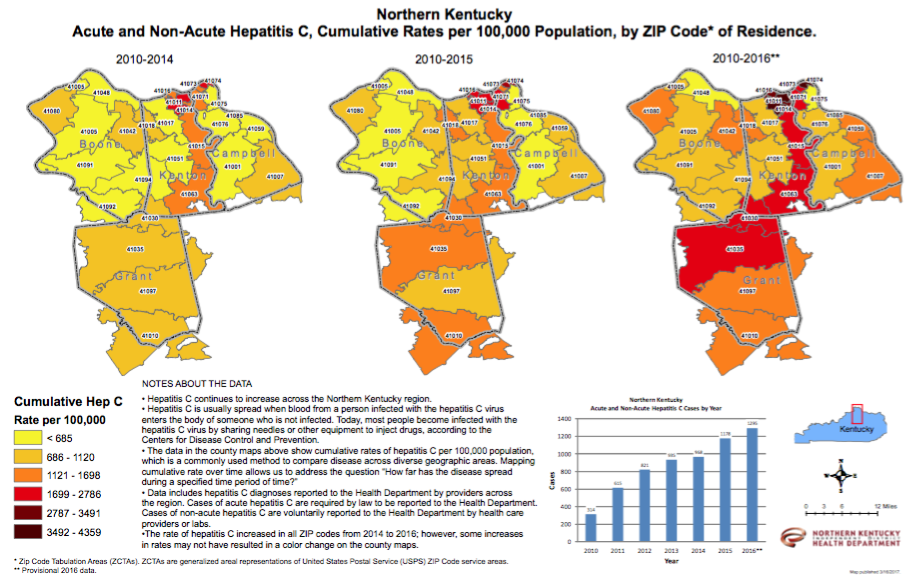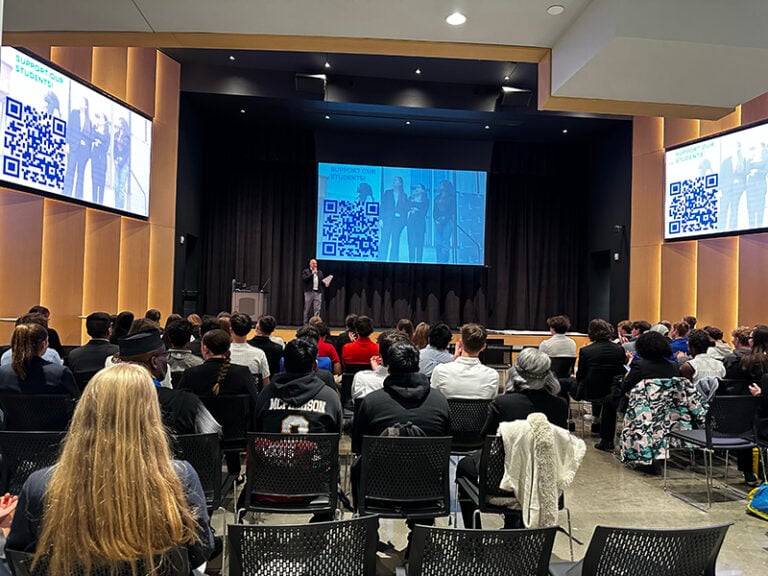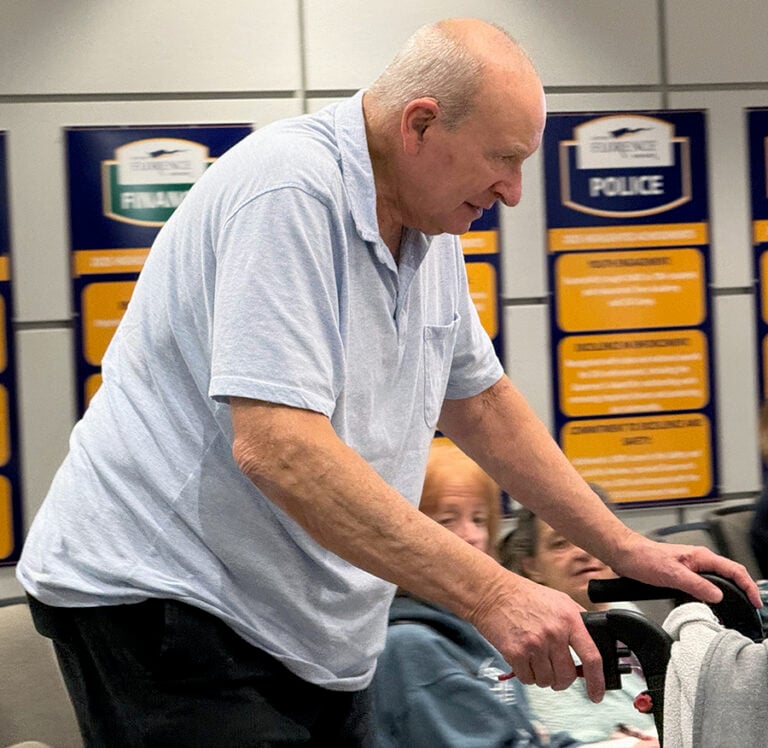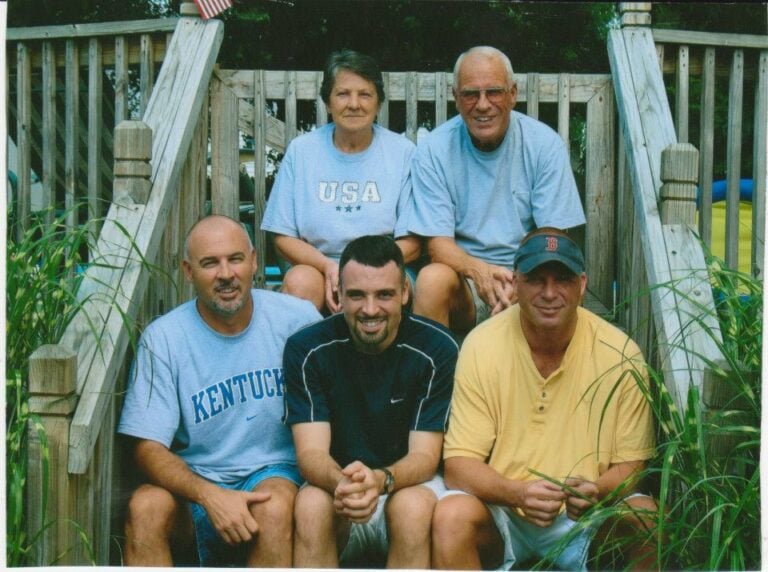From the Northern Kentucky Health Department
In its first year of operation, the Grant County syringe access exchange program has helped 130 people prevent infectious diseases spread through IV drug use.
Services are offered on Wednesday afternoons at the Northern Kentucky Health Department’s Grant County Health Center in Williamstown.
The program launched on March 16, 2016.
“The syringe access exchange program has operated exactly as it was designed to,” said Lynne M. Saddler, MD, MPH, District Director of Health. “The program has not only provided individuals with substance use disorders with access to clean needles, which can stop the spread of hepatitis C and prevent HIV in this population, but it has also served as a connection to substance use treatment programs.

“In the 12 months that the Grant County program has been in operation, 59 participants were referred to drug treatment programs, with 15 of those verified as having entered a detox program. Those numbers truly show the value of syringe exchange—helping to show people that there is a path to treatment and recovery.”
Grant County’s program is one of 20 syringe access exchange programs operating in Kentucky. State law requires approval from the Board of Health as well as the city and county in which such a program operates. Programs in ten other Kentucky counties, including one in Kenton County, have received the necessary approvals, but are not yet in operation.
Prevention of hepatitis C, a contagious liver disease, is one key benefit of syringe access exchange programs. Cases of hepatitis C continued to rise in Northern Kentucky in 2016, with provisional data showing a total of 1,295 cases of acute and non-acute hepatitis C reported to the Health Department. This is a 9.9% increase from 2015, when 1,178 cases were reported.

“Syringe access exchange programs are first and foremost about stopping the spread of disease,” said Garren Colvin, President and CEO of St. Elizabeth Healthcare. “Hepatitis C presents a huge burden on our community and on our health care system. While the virus is treatable, it can be expensive, with one course of treatment costing up to $80,000 for medication alone.
“The Grant County syringe exchange is a great first step while we continue to advocate for programs to also operate in Boone, Campbell and Kenton Counties so we can be more effective in controlling hepatitis C and we can prevent an outbreak of HIV among individuals, similar to the one seen in Scott County, Ind.”
The Grant County syringe access exchange program is funded through a grant from the RC Durr Foundation. Its first year operating costs were $27,361.40.
“Syringe access exchange programs are by no means the solution to our region’s heroin epidemic,” said Saddler. “We need to implement all aspects of Northern Kentucky’s heroin impact response plan, from prevention to treatment and support and harm reduction. Progress in all areas will allow us to reduce the devastating impacts of IV drug use in our community.”
For more information on the Grant County syringe access exchange program or other aspects of the public health response to the heroin epidemic, please visit http://www.nkyhealth.org/heroin-response.aspx.



















